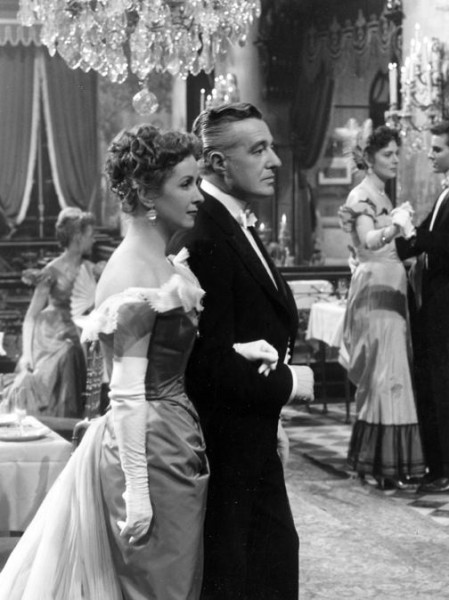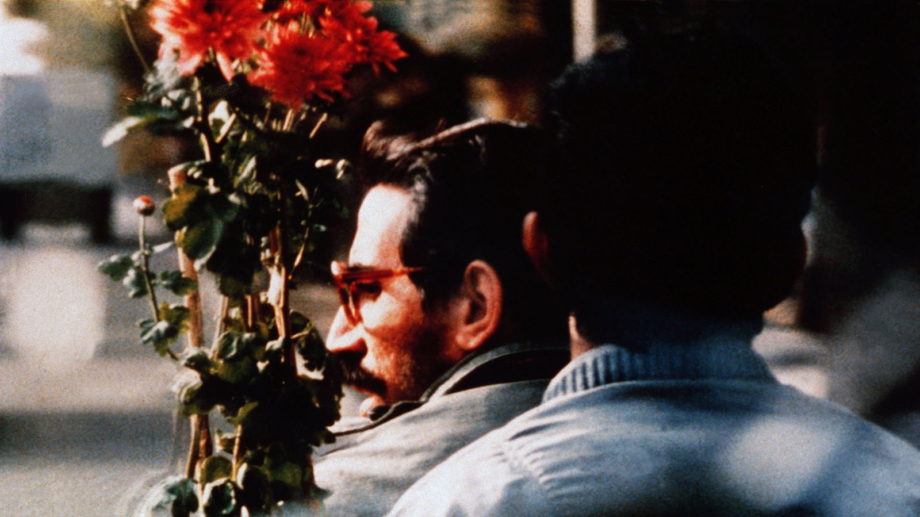We’ve just announced the next two events in our authors’ pick series Print Screen. On March 2, novelist Alexander Chee presents Max Ophüls’s classic The Earrings of Madame de… and on April 18, author, performer, and artist Jacob Wren appears for a discussion and screening of Abbas Kiarostami’s mind-bending masterpiece Close-up.
Bridging the worlds of cinema and literature, our recurring series Print Screen invites our favorite authors to present films that complement and have inspired their work, with discussions and book signings to follow screenings.
Print Screen: Alexander Chee and The Earrings of Madame de…
To mark the recent release of his eagerly awaited second novel, The Queen of the Night (Houghton Mifflin Harcourt), an enthralling tale of a 19th-century Parisian opera star, Alexander Chee joins us for a screening of Max Ophüls’s glorious The Earrings of Madame de…, followed by a discussion and book signing.
Alexander Chee won a Whiting Award for his first novel, Edinburgh, and is a recipient of the NEA Fellowship in Fiction. His writing has appeared in The New York Times Book Review, Tin House, Slate, and NPR, among others, and he is a contributing editor at The New Republic.
The Earrings of Madame de… / Madame de…
Max Ophüls, France/Italy, 1953, 35mm, 105m
French with English subtitles
One of the most sumptuously opulent films from the master of sumptuous opulence, this piercing tale of love and loss sparkles with the finely polished brilliance of the titular jewels. In desperate need of money, the beautiful, impetuous, never-named Madame de… (Danielle Darrieux) sells a pair of diamond earrings given to her by her aristocrat husband (Charles Boyer). But that’s only the beginning, as the boomeranging baubles eventually find their way back to her, this time borne by a dashing Italian diplomat (Vittorio De Sica) with whom she strikes up a fateful love affair. Ophüls’s masterpiece makes striking use of his celebrated, unchained camera, which whirls dazzlingly through the ballrooms, opera houses, and bedrooms of La Belle Époque Paris.
Wednesday, March 2, 7:00pm (Q&A with Alexander Chee)

The Earrings of Madame de…
Print Screen: Jacob Wren and Close-up
Occasioned by the release of Rich and Poor (BookThug), a rare work of literary fiction that cuts into the psychology of politics in off-kilter ways, Jacob Wren joins us to introduce Abbas Kiarostami’s Close-up—a masterful exploration of the nature of truth and cinematic illusion, with a distinctly offbeat sense of humor—followed by a discussion and book signing.
Jacob Wren makes literature, performances, and exhibitions. His books include Unrehearsed Beauty, Families Are Formed Through Copulation, Revenge Fantasies of the Politically Dispossessed, and Polyamorous Love Song (a finalist for the 2013 Fence Modern Prize in Prose and one of The Globe and Mail’s 100 best books of 2014). As co-artistic director of Montreal-based interdisciplinary group PME-ART, Wren has co-created the performances En français comme en anglais, it’s easy to criticize, Individualism Was a Mistake, The DJ Who Gave Too Much Information, and Every Song I’ve Ever Written. He travels internationally with alarming frequency and often writes about contemporary art.
Close-up
Abbas Kiarostami, Iran, 1990, 35mm, 98m
Persian and Azerbaijani with English subtitles
A young man introduces himself as Mohsen Makhmalbaf, among the most celebrated directors of 1990s Iranian cinema, and enters intimately into the life of a family under the pretext that he’s scouting locations for a new film project. Deeply suspicious of the stranger, the father investigates his houseguest, leading to the con man’s exposure and arrest. At this stage, Abbas Kiarostami and his real-life film crew enter the story to film the Makhmalbaf imposter’s trial. Events preceding the young man’s arrest are dramatized and reconstructed, but with the real people “playing” themselves. A masterful exploration of the nature of truth and cinematic illusion, with a distinctly offbeat sense of humor, Close-up has been widely hailed as one of Kiarostami’s crowning achievements and one of the greatest films of the 1990s.
“Abbas Kiarostami once said that Close-up is the only one of his films he can watch together with an audience because ‘it wasn’t my film.’ It is a hybrid, a mix of fact and fiction, documentary and artifice, reality and pure cinema. A film that he continued to discover as he was making it, partly in witting and unwitting collusion with everyone else involved. It is a film I have perhaps romanticized far too much over the years. I first saw it at a moment when I was searching for an art that was closer to reality but still art, searching for art that was closer to reality but didn’t claim to really know what reality was. For me ‘it wasn’t my film’ says that we are making art in collaboration with a world that is very much outside our control.
In a conversation with Godfrey Cheshire, Kiarostami says that, for him, Close-up is mainly about the power of imagination, about cinema as a vehicle of dreams: ‘Nobody can touch your dreams. In a way dreams exactly embody the concept of freedom. They free you of all constraints. I think God gave human beings this possibility to apologize for all the limitations he’s created for them.’ A film taking its first impulse from a real life story in the newspaper that is at the same time a film about dreams. What would our dreams be like if there were no newspapers, no television or advertising, no books or films? Our dreams are compromised in ways we cannot even know the true extent of. For me Close-up is a film that speaks directly to this compromise.” — Jacob Wren
Monday, April 18, 7:30pm (Q&A with Jacob Wren)



